 W
WParliamentary procedure is the accepted rules, ethics, and customs governing meetings of an assembly or organization. It is supposed to represent the will of the majority. Its object is to allow deliberation upon questions of interest to the organization and to arrive at the sense or the will of the assembly upon these questions. Self-governing organizations follow parliamentary procedure to debate and reach group decisions—usually by vote—with the least possible friction.
 W
WBlue slip or blue-slipping refers to two distinct legislative procedures in the United States Congress.
 W
WThe chairperson is the presiding officer of an organized group such as a board, committee, or deliberative assembly. The person holding the office, who is typically elected or appointed by members of the group, presides over meetings of the group, and conducts the group's business in an orderly fashion.
 W
WA committee or commission is a body of one or more persons subordinate to an assembly. A committee is not itself considered to be a form of assembly. Usually, the assembly sends matters into a committee as a way to explore them more fully than would be possible if the assembly itself were considering them. Committees may have different functions and their types of work differ depending on the type of the organization and its needs.
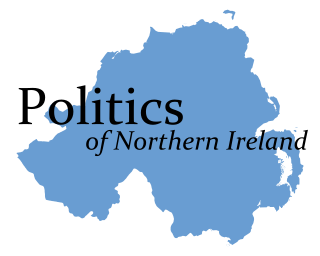 W
WA cross-community vote or cross-community support is a form of voting used in the Northern Ireland Assembly according to the provisions of the 1998 Good Friday Agreement. It requires the support of both main communities in Northern Ireland, in other words majority of unionists and the majority of nationalist members of the Assembly. Among other reasons, it arises when the petition of concern procedure is invoked.
 W
WErskine May is a parliamentary authority originally written by British constitutional theorist and Clerk of the House of Commons, Thomas Erskine May.
 W
WA gavel is a small ceremonial mallet commonly made of hardwood, typically fashioned with a handle. It can be used to call for attention or to punctuate rulings and proclamations and is a symbol of the authority and right to act officially in the capacity of a presiding officer. It is often struck against a sound block, a striking surface typically also made of hardwood, to enhance its sounding qualities. According to tradition, Vice President John Adams used a gavel as a call to order in the first U.S. Senate in New York in the spring of 1789. Since then, it has remained customary to tap the gavel against a lectern or desk to indicate the opening and closing of proceedings and to indicate that the judge’s decision is final. It is also used to keep the meeting itself calm and orderly.
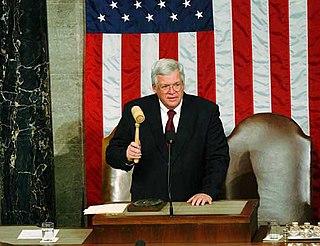 W
WThe Hastert Rule, also known as the "majority of the majority" rule, is an informal governing principle used in the United States by Republican Speakers of the House of Representatives since the mid-1990s to maintain their speakerships and limit the power of the minority party to bring bills up for a vote on the floor of the House. Under the doctrine, the Speaker will not allow a floor vote on a bill unless a majority of the majority party supports the bill.
 W
WIn Australian politics, a leadership spill is a declaration that the leadership of a parliamentary party is vacant and open for re-election. A spill may involve all leadership positions, or just the leader. Where a rival to the existing leader calls for a spill, it may also be called a leadership challenge.
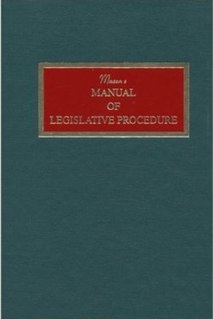 W
WMason's Manual of Legislative Procedure, commonly referred to as Mason's Manual, is the official parliamentary authority of most state legislatures in the United States. This 700+ page book has been "Adopted as the authority on questions of parliamentary law and procedure in California, it is to legislatures what Robert's Rules of Order is to club groups. Gleaned from court decisions and legislative precedents, salted by practical experience, it is... [used] by legislatures throughout the U.S. and its territories."
 W
WMinutes, also known as minutes of meeting, protocols or, informally, notes, are the instant written record of a meeting or hearing. They typically describe the events of the meeting and may include a list of attendees, a statement of the issues considered by the participants, and related responses or decisions for the issues.
 W
WIn modern politics and history, a parliament is a legislative body of government. Generally, a modern parliament has three functions: representing the electorate, making laws and overseeing the government via hearings and inquiries. The term is similar to the idea of a senate, synod or congress and is commonly used in countries that are current or former monarchies. Some contexts restrict the use of the word parliament to parliamentary systems, although it is also used to describe the legislature in some presidential systems, even where it is not in the official name.
 W
WParliamentary privilege in the United Kingdom is a legal immunity enjoyed by members of the House of Commons and House of Lords designed to ensure that parliamentarians are able to carry out their duties free from interference. The privileges are freedom of speech, freedom from arrest on civil matters, freedom of access to the sovereign and that 'the most favourable construction should be placed on all the Houses's proceedings'. Parliamentary privilege is however something that forms part of the law rather than putting Members of Parliament above the law – for example, these rights and immunities do not extend to crimes unrelated to their office. The doctrine of parliamentary privilege was unsuccessfully used to try to prevent details of MPs expenses from emerging in 2010. In recent years the doctrine of parliamentary privilege has made headlines in relation to the arrest of Damian Green and several cases relating to super-injunctions such as RJW & SJW v The Guardian newspaper & Person or Persons Unknown ('Trafigura') and CTB v News Group Newspapers leading to calls to reform the law relating to privilege.
 W
WA parliamentary republic is a republic that operates under a parliamentary system of government where the executive branch derives its legitimacy from and is accountable to the legislature. There are a number of variations of parliamentary republics. Most have a clear differentiation between the head of government and the head of state, with the head of government holding real power, much like constitutional monarchies. Some have combined the roles of head of state and head of government, much like presidential systems, but with a dependency upon parliamentary power.
 W
WA parliamentary system or parliamentary democracy is a system of democratic governance of a state where the executive derives its democratic legitimacy from its ability to command the support ("confidence") of the legislature, typically a parliament, to which it is accountable. In a parliamentary system, the head of state is usually a person distinct from the head of government. This is in contrast to a presidential system, where the head of state often is also the head of government and, most importantly, where the executive does not derive its democratic legitimacy from the legislature.
 W
WProcedures of the United States Congress are established ways of doing legislative business. Congress has two-year terms with one session each year. There are rules and procedures, often complex, which guide how it converts ideas for legislation into laws.
 W
WA quorum is the minimum number of members of a deliberative assembly necessary to conduct the business of that group. According to Robert's Rules of Order Newly Revised, the "requirement for a quorum is protection against totally unrepresentative action in the name of the body by an unduly small number of persons." In contrast, a plenum is a meeting of the full body.
 W
WIn law, a resolution is a written motion adopted by a deliberative body. The substance of the resolution can be anything that can normally be proposed as a motion. For long or important motions, though, it is often better to have them written out so that discussion is easier or so that it can be distributed outside the body after its adoption. An alternate term for a resolution is a resolve.
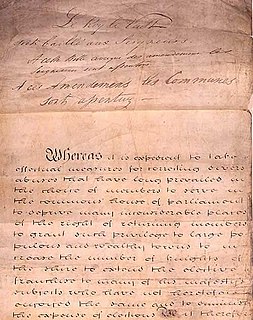 W
WLa Reyne le veult or Le Roy le veult is a Norman French phrase used in the Parliament of the United Kingdom to signify that a public bill has received royal assent from the monarch of the United Kingdom. It is a legacy of the time prior to 1488 when parliamentary and judicial business was conducted in French, the language of the educated classes dating to the Norman Conquest of 1066. It is one of a small number of Norman French phrases that continue to be used in the course of parliamentary procedure.
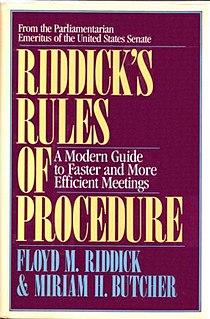 W
WRiddick's Rules of Procedure is a parliamentary authority - a book explaining the parliamentary procedure, including the rules, ethics, and customs governing meetings and other operations of the United States Senate. It was written by Floyd M. Riddick and co-authored by Miriam Butcher. The book is based on Riddick's experience as parliamentarian of the Senate as well as the procedures of assemblies using parliamentary manuals such as Robert's Rules of Order, and is arranged in a glossary style.
 W
WRobert's Rules of Order Newly Revised, commonly referred to as Robert's Rules of Order, RONR, or simply Robert's Rules, is a political book written by Henry Martyn Robert. It is the most widely used manual of parliamentary procedure in the United States. It governs the meetings of a diverse range of organizations—including church groups, county commissions, homeowners associations, nonprofit associations, professional societies, school boards, and trade unions—that have adopted it as their parliamentary authority.
 W
WIn Roman constitutional law, rogatio is the term for a legislative bill placed before an Assembly of the People in ancient Rome. The rogatio procedure underscores the fact that the Roman senate could issue decrees, but was not a legislative or parliamentarian body. Only the People could pass legislation.
 W
WThe Rules of Procedure of the European Parliament is the document with the operating rules of the European Parliament governing the Assembly elected under the Treaties, the Act of 20 September 1976 concerning the election of Members of the European Parliament by direct universal suffrage and the national laws resulting from the application of the Treaties.
 W
WSemi-parliamentary system can refer to either a prime-ministerial system, in which voters simultaneously vote for both members of legislature and the prime minister, or to a system of government in which the legislature is split into two parts that are both directly elected – one that has the power to remove the members of the executive by a vote of no confidence and another that does not. The former was first proposed by Maurice Duverger, who used it to refer to Israel from 1996-2001. The second was identified by German academic Steffen Ganghof.
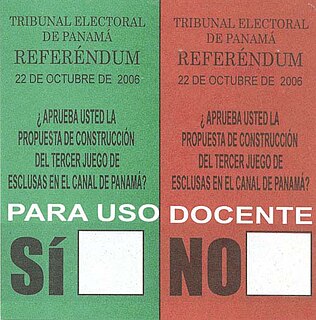 W
WVoting is a method for a group, such as a meeting or an electorate, in order to make a collective decision or express an opinion usually following discussions, debates or election campaigns. Democracies elect holders of high office by voting. Residents of a place represented by an elected official are called "constituents", and those constituents who cast a ballot for their chosen candidate are called "voters". There are different systems for collecting votes, but while many of the systems used in decision-making can also be used as electoral systems, any which cater for proportional representation can only be used in elections.
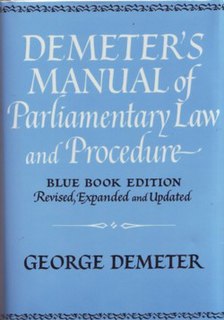 W
W W
W W
W